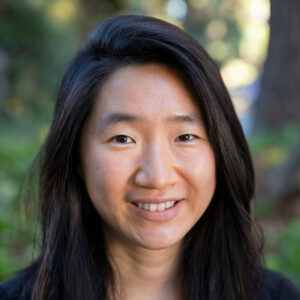Angela Zhou
Talk Title: Credible and Effective Data-Driven Decision-Making: Minimax Policy Learning under Unobserved Confounding
Talk Abstract: We study the problem of learning causal-effect maximizing personalized decision policies from observational data while accounting for possible unobserved confounding. Since policy value and regret may not be point-identifiable, we study a method that minimizes the worst-case estimated regret over an uncertainty set for propensity weights that controls the extent of unobserved confounding. We prove generalization guarantees that ensure our policy will be safe when applied in practice and will in fact obtain the best-possible uniform control on the range of all possible population regrets that agree with the possible extent of confounding. Finally, we assess and compare our methods on synthetic and semi-synthetic data. In particular, we consider a case study on personalizing hormone replacement therapy based on the parallel WHI observational study and clinical trial. We demonstrate that hidden confounding can hinder existing policy learning approaches and lead to unwarranted harm, while our robust approach guarantees safety and focuses on well-evidenced improvement. This work is joint with Nathan Kallus. An earlier version was circulated as “Confounding-Robust Policy Improvement”. Time permitting, I will highlight recent follow-up work on robust policy evaluation for infinite-horizon reinforcement learning.
Bio: My research interests are at the intersection of statistical machine learning and operations research in order to inform reliable data-driven decision-making. Specifically, I have developed fundamental contributions and algorithmic frameworks for robust causal-effect-maximizing personalized decision rules in view of unobserved confounding, as well as methodology for credible impact evaluation for algorithmic fairness with high potential impact in industry and policy. My work has been published in journals such as Management Science and top-tier computer science/machine learning venues (Neurips/ICML), and has received a INFORMS Data Mining Section Best Paper award. My work was previously supported on a NDSEG (National Defense Science and Engineering) Graduate Fellowship.
